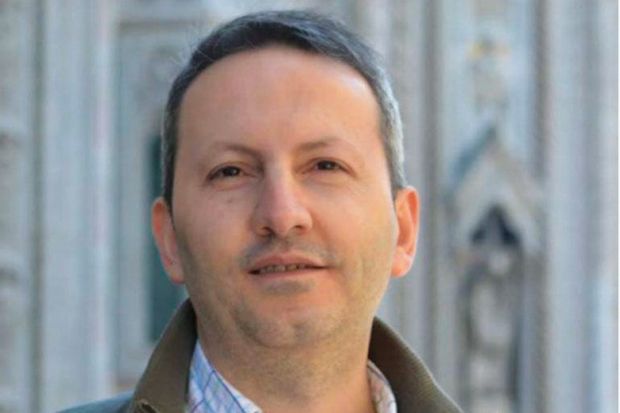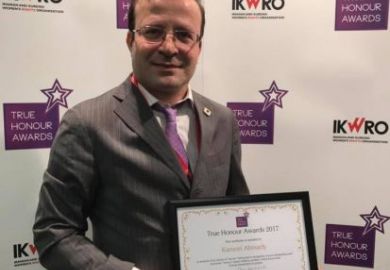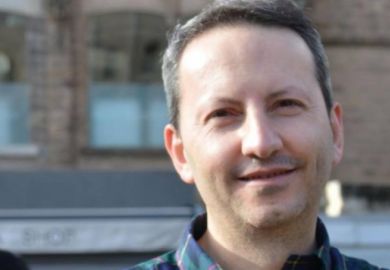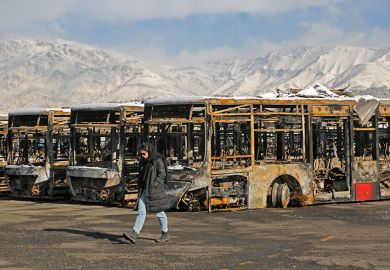The Iranian government is threatening to execute a Swedish-Iranian academic to thwart a trial against an Iranian official accused of war crimes, a leading non-profit organisation has said.
Ahmadreza Djalali was arrested and charged with espionage during an invited visit to the University of Tehran in 2016. Sentenced to death in 2017, he has been held in solitary confinement for months at a time and is suffering serious health problems.
On 4 May, the Swedish trial of Hamid Nouri, an Iranian official accused of war crimes ended, with a jury verdict due on 14 July. On the same day, Iranian state media reported that Dr Djalali’s execution was scheduled for 21 May.
“The Iranian government is engaging in blatant extortion,” said Hadi Ghaemi, executive director of the Center for Human Rights in Iran (CHRI). In a statement, the centre said that the execution threat was “aimed at thwarting the trial”.
“This thuggish behaviour is an intimidation tactic aimed at disrupting a fair trial against a man accused of heinous human rights violations,” said Dr Ghaemi. “The timing of the death sentence announcement against Djalali is more proof that he is being held as a bargaining chip to gain Nouri’s release or a reduction of the charges.”
Mr Nouri was detained in Sweden in 2019 over his alleged involvement in the 1988 killing of about 5,000 political prisoners by the Iranian authorities.
In his years in Tehran’s Evin prison Dr Djalali has lost teeth, 25kg, and is suffering from precancerous gastritis, anaemia, gallstones and skin disorders, according to his wife, Vida Mehrannia.
The United Nations, international rights groups, more than 100 Nobel laureates and many university and academic organisations have campaigned for Dr Djalali’s release, organising letter-writing campaigns to Iranian and European governments.
The CHRI has said that Dr Djalali is among at least 15 dual nationals and one foreign national detained in Iran without due process.
One Iranian captive recently told Times Higher Education that public attention improved her medical care and said universities should do more to assess the risks of academic trips to authoritarian countries.
Register to continue
Why register?
- Registration is free and only takes a moment
- Once registered, you can read 3 articles a month
- Sign up for our newsletter
Subscribe
Or subscribe for unlimited access to:
- Unlimited access to news, views, insights & reviews
- Digital editions
- Digital access to THE’s university and college rankings analysis
Already registered or a current subscriber?







